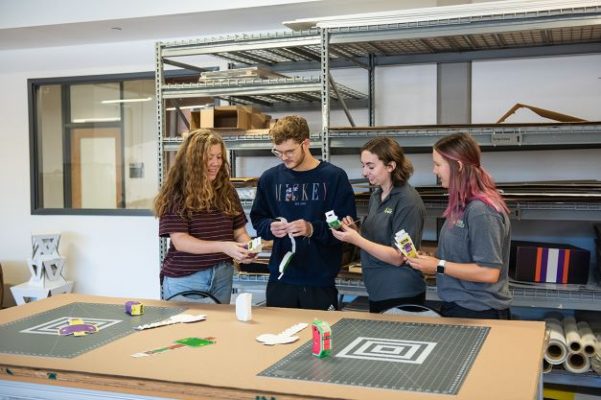Nationwide, industries have been struggling to find well-trained workers, and the packaging and flexible packaging industries have not been immune. For the past year, FlexPack VOICE® has profiled some of the colleges, universities, and schools that have developed programs to train our future workforce. In this issue, we talk to Robert M. Kimmel, Sc.D, an associate professor at Clemson University in Clemson, South Carolina. Kimmel also is director of the packaging science program and director of the Center for Flexible Packaging in the university’s department of food nutrition and packaging sciences.
FLEXPACK VOICE®: TELL US A LITTLE BIT ABOUT THE PACKAGING PROGRAM AT YOUR SCHOOL.
Robert M. Kimmel: The packaging science program at Clemson University provides students several routes to a broad, science-based education in packaging science. Most of our students enter the workplace after completing their B.S. degree, including a required industry co-op experience. Those interested in research complete a thesis-based M.S. degree or a Ph.D. Our program provides students the opportunity to focus on a specialized area of packaging: food/healthcare, materials, design, or transport. Alternatively, students may complete any minor offered at the university. The program’s extensive laboratory facilities provide every student with hands-on experience with the testing and processing equipment used throughout the industry.
FPV: WHAT ARE THE KEY SKILLS EMPLOYERS ARE LOOKING FOR WHEN HIRING FROM YOUR PROGRAM?
RK: Clemson graduates are recognized for their familiarity and experience with industry equipment. Industry-sponsored projects in several courses provide real-world experience with problem-solving and the development of critical thinking and analytical skills.
FPV: WHAT EMPHASIS DO YOU PUT ON FLEXIBLE PACKAGING?
RK: Clemson established its center for flexible packaging in 2004 to provide support to the industry for product development from film extrusion, lamination, pouch making, and filling to testing and shelf-life studies. Every undergraduate takes the Converting for Flexible Packaging course using these capabilities.
We are currently seeking a new professor in sustainable packaging focusing on flexible packaging.
FPV: WHAT DO YOU SEE AS FUTURE CHALLENGES IN THE PACKAGING INDUSTRY?
RK: It is now very apparent that multiple solutions will be required to move a high percentage of packaging applications to sustainable concepts. Today, we are being presented with a plethora of ideas, some of which are innovative and excellent, but many of which are ill-defined and even based on incorrect assumptions. The whole subject area is still distorted by the media—the public continues to be confused. The major challenge for us and our students is balancing good science with prudent business decisions.
